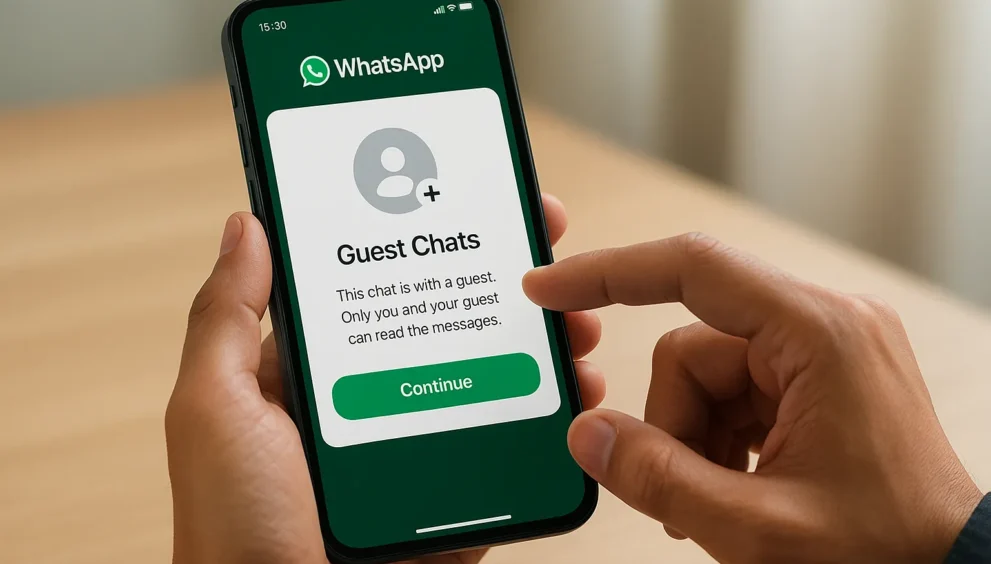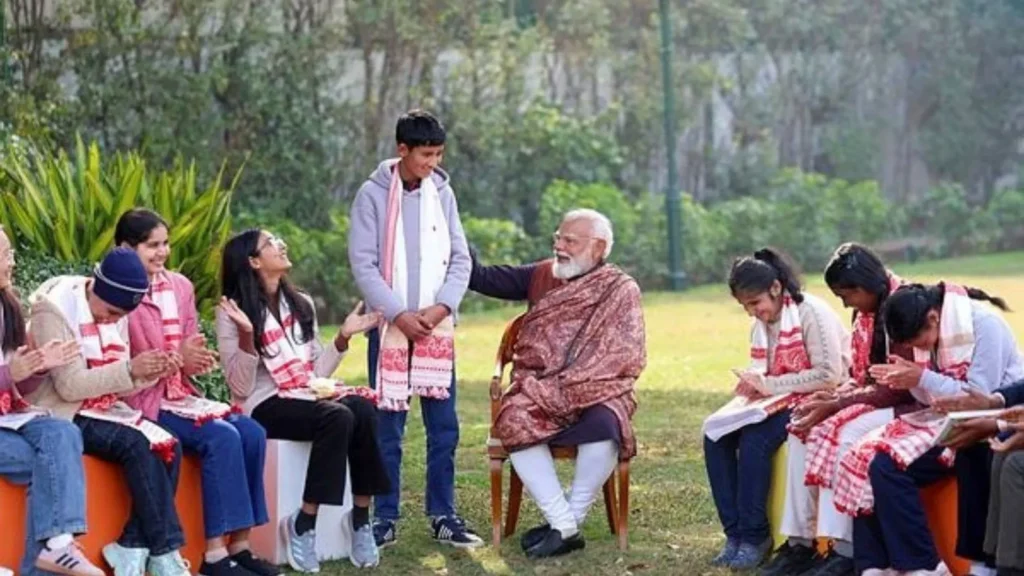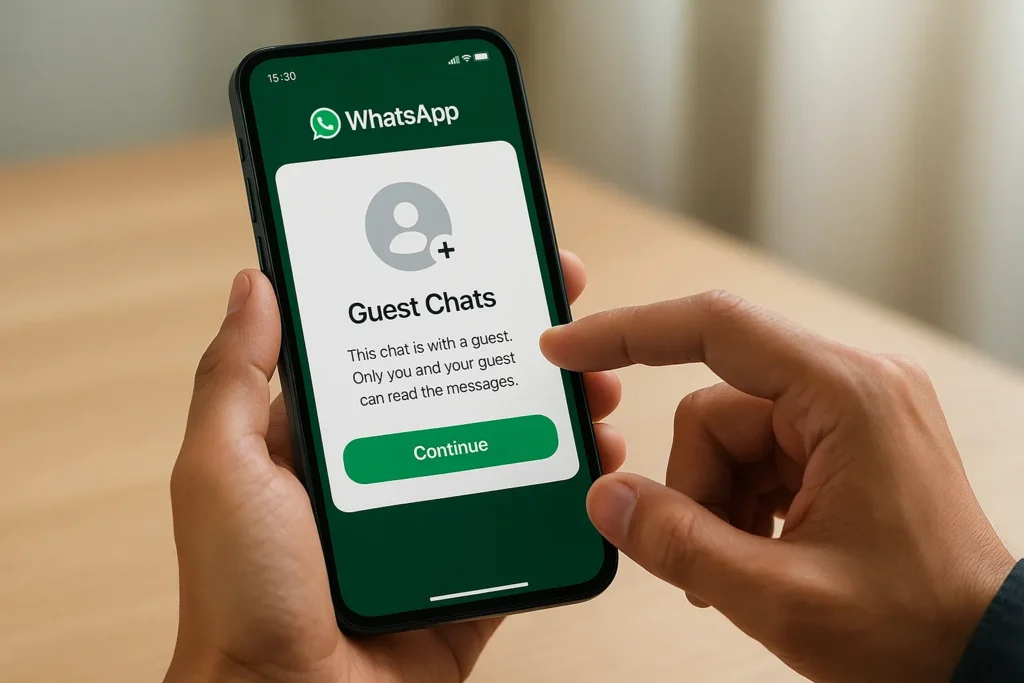How to Learn Web Development in 2026 :
Feb 23, 2026WhatsApp ‘Guest Chats’ feature coming soon: What it is and how it may work

Introduction
WhatsApp, the world’s most popular messaging platform with over 2.8 billion active users, is preparing to roll out a game-changing feature: Guest Chats. Discovered in a beta version of the Android app by the well-known update tracker WaBetaInfo, this upcoming feature will allow people to chat with WhatsApp users without creating an account or installing the app.
The Guest Chats feature is expected to be a major step toward making WhatsApp more accessible for occasional or one-time conversations. Think of it as a way to send messages to someone who doesn’t have WhatsApp yet — a customer, a family member, or a colleague — without forcing them to go through the account creation process.
In this blog, we’ll explore what Guest Chats are, how the feature may work, its security aspects, possible use cases, and the challenges WhatsApp might face before making it public.
What Is the ‘Guest Chats’ Feature?
The Guest Chats feature is designed to enable WhatsApp users to communicate with people who do not have a registered WhatsApp account. Currently, if you want to chat on WhatsApp, you must install the app, register your phone number, and link it to your account. With Guest Chats, all of that won’t be necessary.
Instead, WhatsApp users will be able to generate a secure invitation link and share it via SMS, email, or any other platform. When the recipient clicks the link, they’ll be taken to a browser-based chat interface — similar to WhatsApp Web — where they can have a one-on-one text conversation.
The concept has similarities with how Google Meet or Zoom allows people to join meetings without signing up. WhatsApp’s move seems aimed at reducing friction for first-time users and offering a lightweight communication option for people who aren’t ready to install the app.
How It May Work
While the exact implementation details are still under wraps, beta leaks and insider reports suggest the following possible flow:
- Creating the Invite
- A WhatsApp user will open a chat interface and choose the “Invite Guest” or “Guest Chat” option.
- WhatsApp will generate a unique, secure link (likely time-limited for security).
- The user can copy this link and share it with the non-WhatsApp user through email, SMS, or any other messaging platform.
- A WhatsApp user will open a chat interface and choose the “Invite Guest” or “Guest Chat” option.
- Joining as a Guest
- The recipient clicks the link and is directed to a web-based chat window, without requiring the WhatsApp app.
- They can immediately start texting with the sender. No account, phone number, or installation needed.
- The recipient clicks the link and is directed to a web-based chat window, without requiring the WhatsApp app.
- Feature Limitations
- Supported: Only basic text messaging for now.
- Not supported (at least initially): sending images, videos, voice messages, GIFs, group chats, voice calls, or video calls.
- This minimal setup keeps the guest interface lightweight and avoids unnecessary complexity.
- Supported: Only basic text messaging for now.
- Session Expiry
- Chats may be temporary, with automatic deletion after a certain time period.
- This is likely to improve privacy and prevent spam or phishing risks.
- Chats may be temporary, with automatic deletion after a certain time period.
This approach could make WhatsApp more versatile while also providing a “try-before-you-sign-up” experience for new users.
Security and Privacy
Security has always been a strong selling point for WhatsApp, and reports indicate that Guest Chats will also be protected by end-to-end encryption (E2EE). This means that even though the guest is not using the official app, their messages will still be encrypted in the same way as regular WhatsApp chats.
Key privacy measures expected:
- End-to-End Encryption will ensure that only the sender and the guest can read the messages.
- Secure Links — Each invite will likely be unique, time-limited, and possibly password-protected.
- No Third-Party Involvement — The chat will still operate entirely within WhatsApp’s infrastructure, reducing exposure to outside tracking.
This focus on security could make Guest Chats especially useful for sensitive conversations with non-users, although the limited feature set may be intentional to keep risks low.
Potential Use Cases
The Guest Chats feature could have a wide range of applications across personal, professional, and commercial contexts:
- Customer Support
Businesses could provide a WhatsApp chat option for customers without requiring them to download the app.
For example, an e-commerce store could send a guest chat link to a customer asking about their order. - Event Coordination
Event organizers could use Guest Chats to communicate quickly with attendees or contractors who don’t have WhatsApp. - One-Time Conversations
Perfect for cases where you only need to talk once — like discussing a delivery, troubleshooting a service issue, or sharing urgent information. - Onboarding New Users
Guest Chats could act as a soft introduction to WhatsApp, encouraging new people to try it out without committing to a full installation. - Cross-Platform Communication
While this is not the same as EU Digital Markets Act (DMA)-mandated interoperability (which would allow messaging between apps like Signal or Telegram), Guest Chats move in that direction by reducing barriers for external communication.
Challenges and Concerns
While Guest Chats offer exciting possibilities, they also raise some potential challenges:
- Spam and Phishing Risks
Since guests can join just by clicking a link, scammers might exploit the feature to trick people into unsafe conversations.
WhatsApp will need robust link-verification and reporting tools. - Limited Functionality
The absence of multimedia support may frustrate users expecting a full chat experience. However, this limitation is also a safeguard against abuse. - Data Privacy Concerns
Even with encryption, some users may worry about how Meta (WhatsApp’s parent company) handles metadata, session logs, or guest identity tracking. - Adoption Rate
For this feature to succeed, WhatsApp must market it effectively and make it visible enough in the app’s interface.
Conclusion
WhatsApp’s upcoming Guest Chats feature could redefine how we use the platform for quick, secure, and one-time conversations. By enabling chat with non-users via a simple link, it bridges the gap between WhatsApp’s closed ecosystem and the open web.
Strengths:
- Easy access for non-users
- End-to-end encryption
- Great for business and customer support
Weaknesses:
- Limited to text-only chats
- Potential misuse for spam or phishing
While no official release date has been confirmed, the feature’s presence in beta testing suggests it could arrive later this year. If executed well, Guest Chats might become a valuable tool for personal and professional communication — and possibly a stepping stone toward more interoperable messaging in the future.












































